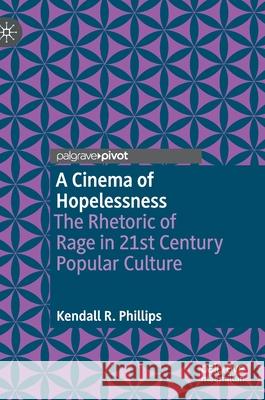A Cinema of Hopelessness: The Rhetoric of Rage in 21st Century Popular Culture » książka
topmenu
A Cinema of Hopelessness: The Rhetoric of Rage in 21st Century Popular Culture
ISBN-13: 9783030741358 / Angielski / Twarda / 2021 / 122 str.
Kategorie:
Kategorie BISAC:
Wydawca:
Palgrave MacMillan
Seria wydawnicza:
Język:
Angielski
ISBN-13:
9783030741358
Rok wydania:
2021
Wydanie:
2021
Numer serii:
000756656
Ilość stron:
122
Waga:
0.32 kg
Wymiary:
21.01 x 14.81 x 0.97
Oprawa:
Twarda
Wolumenów:
01
Dodatkowe informacje:
Wydanie ilustrowane











